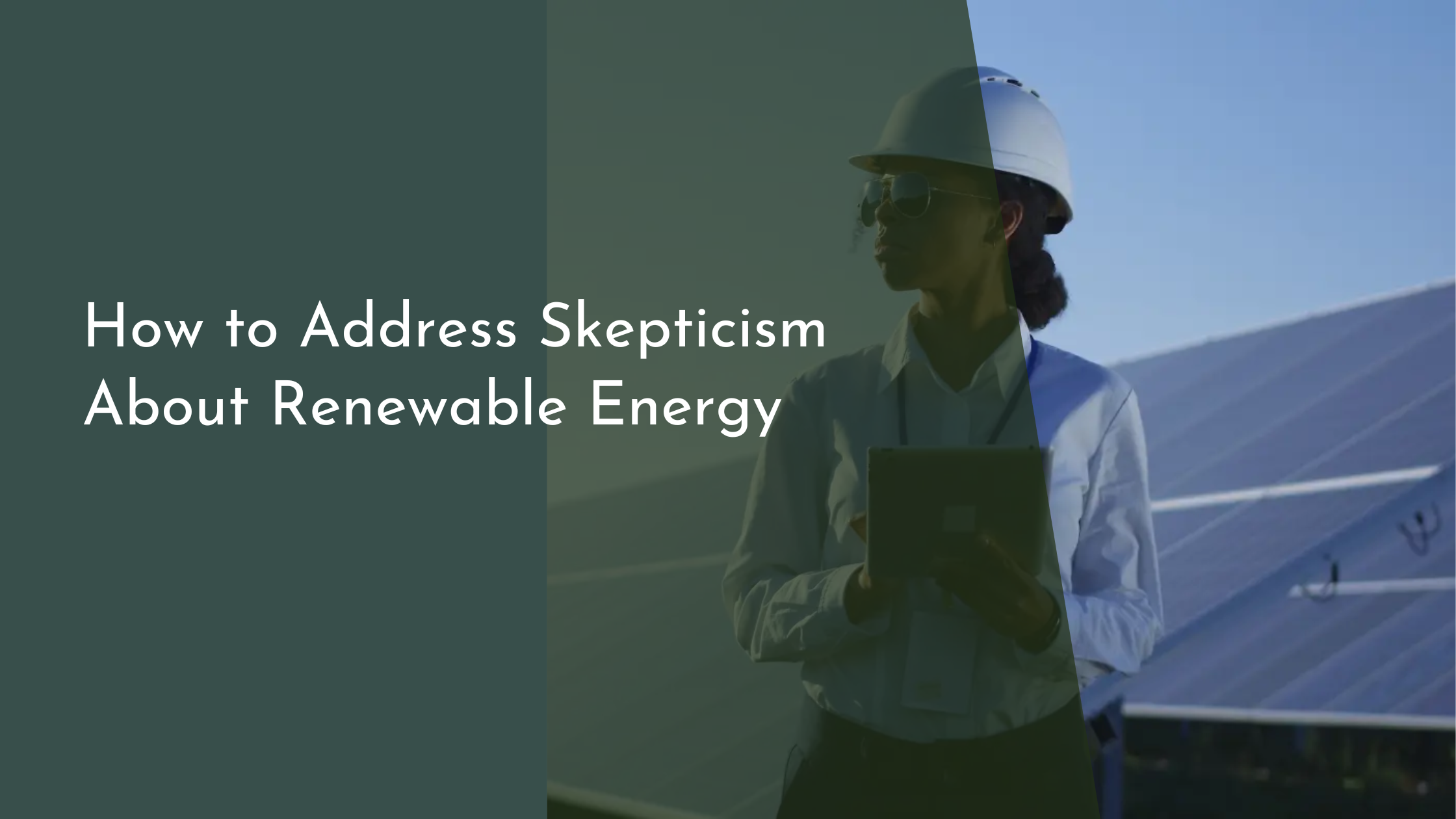How to Address Skepticism About Renewable Energy
Renewable energy is becoming an essential component of the global conversation on sustainability and the transition away from fossil fuels. Despite its growing prominence, skepticism about renewable energy persists. Addressing these concerns requires an understanding of the myths and misconceptions that fuel skepticism, as well as highlighting the undeniable advantages of clean energy sources. This article explores common concerns, emphasizes the benefits, tackles technical and economic challenges, and discusses the importance of engaging communities in constructive dialogue.
Understanding Common Concerns and Myths
Skepticism about renewable energy often stems from myths and misunderstandings that continue to circulate. One common concern is the belief that renewable energy sources, such as solar and wind, are unreliable due to their dependence on weather conditions. Critics argue that because the sun doesn’t always shine and the wind doesn’t always blow, these energy sources cannot provide a consistent and stable energy supply. However, advances in energy storage technology, such as batteries and grid management systems, are increasingly addressing these reliability concerns, ensuring that renewable energy can play a role in a stable, reliable energy grid.
Another prevalent myth is the misconception that renewable energy is too expensive compared to traditional fossil fuel sources. While it is true that initial investment costs can be high, the long-term savings and environmental benefits often outweigh these upfront expenses. As technology improves and economies of scale are achieved, the cost of renewable energy has been consistently decreasing. In many regions, the cost of electricity from renewable sources is now competitive with, or even cheaper than, fossil fuels, debunking the myth of prohibitive costs.
Highlighting the Benefits of Renewable Energy
The transition to renewable energy offers numerous environmental benefits, which are essential to addressing the climate crisis. Unlike fossil fuels, renewable energy sources do not produce greenhouse gas emissions during operation, significantly reducing air pollution and the carbon footprint. This cleaner energy production can lead to improved public health outcomes, as communities experience fewer respiratory issues and other health problems associated with poor air quality.
Economically, renewable energy presents opportunities for job creation and economic growth. The renewable energy sector is one of the fastest-growing industries globally, with significant potential for job creation in areas such as manufacturing, installation, maintenance, and research and development. Investing in renewable energy not only helps to diversify the energy portfolio but also stimulates local economies and supports sustainable development.
Addressing Technical and Economic Challenges
Technical challenges, such as energy storage and grid integration, are critical hurdles in the widespread adoption of renewable energy. Energy storage technologies are key to mitigating the intermittent nature of renewable sources. Recent advancements in battery technology and the development of more efficient, large-scale storage solutions are promising steps toward overcoming these challenges. Additionally, integrating renewable energy into the existing grid infrastructure requires sophisticated management systems that ensure efficient distribution and reliability.
Economic challenges primarily revolve around the initial investment required to develop renewable energy projects. To address this, governments and private sectors are increasingly offering incentives, subsidies, and tax breaks to make renewable energy projects more financially viable. Innovative financing models, such as power purchase agreements and green bonds, also provide avenues to reduce the economic burden on investors and encourage the development of renewable infrastructure.
Engaging Communities and Encouraging Dialogue
Community engagement is crucial in addressing skepticism and fostering support for renewable energy projects. By involving local communities from the outset, developers can address concerns, educate residents on the benefits, and tailor projects to meet local needs. Community-based projects, where residents have a stake or ownership in the initiative, can enhance acceptance and create a sense of pride and responsibility for the success of renewable energy ventures.
Encouraging open dialogue and education about renewable energy is vital to dispel myths and build consensus. Public forums, workshops, and informational campaigns can provide platforms for discussing the environmental, economic, and social impacts of renewable energy, helping to build trust and understanding. By creating spaces for meaningful interaction, stakeholders can collaborate to address challenges and work towards a more sustainable future.
Addressing skepticism about renewable energy requires a multi-faceted approach that dispels myths, highlights benefits, and tackles technical and economic challenges. By engaging with communities and fostering open dialogue, it is possible to build widespread support for the transition to renewable energy sources. As we strive for a more sustainable and resilient energy system, overcoming skepticism is essential. With continued innovation, investment, and collaboration, renewable energy can become a cornerstone of our future energy landscape, benefiting both the planet and its inhabitants.

